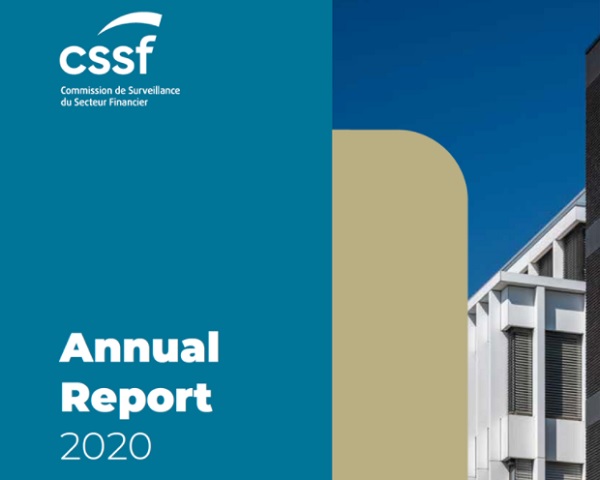
Luxembourg's financial regulator, the Commission de Surveillance du Secteur Financier (CSSF) has published its annual report for 2020, in which it devoted much coverage to COVID-19, Brexit and financial innovation.
"The COVID-19 pandemic and the Brexit put their stamp on 2020. However, these events did not stop the CSSF from continuing to invest in order to better meet the expectations of its stakeholders, nor the numerous regulatory works induced by a constantly evolving framework" the report stated.
Some key facts are highlighted below.
COVID-19
At internal level:
- CSSF agents shifted to remote working as of 16 March 2020.
- Total business continuity achieved thanks to investments in ICT within the framework of the CSSF 4.0 transformation strategy.
At supervisory level:
- The CSSF was one of the first supervisory authorities to encourage the entities under its supervision to activate their business continuity plan and to shift to teleworking.
- Making use, together with the European Supervisory Authorities, of the flexibility allowed by the regulatory framework in order not to impose additional burden on the supervised entities at the height of the crisis.
- Closer relations with the industry to better assess and manage the risks incurred in particular as regards liquidity.
Brexit
- Support to the stakeholders concerned to avoid a cliff effect at the end of the transitional period.
- Publication of CSSF Regulation No 20-02, amended by CSSF Regulation No 20-09 recognising the equivalence of the United Kingdom at the end of the transitional period, under the national third-country MiFID II/MiFIR regime.
Investment funds
- Implementation of the Environmental, Social, and Corporate Governance (ESG)/Sustainable Finance Disclosure Regulation (SFDR) requirements.
- Launch of the ESMA Data Quality Engagement Framework.
- Work on the recast of the AIFMD.
- Work on liquidity risk based on IOSCO/FSB initiatives, ESBR recommendations and ESMA actions.
Credit institutions
- Preparations for the authorisation as central securities depository of a major player of the financial sector.
- Significant increase in the need for credit value adjustments due to the forward-looking effect introduced in the IFRS accounting rules.
- Establishment, by the CSSF as manager, of the central electronic data retrieval system concerning payment and banking accounts identified by IBAN and safe-deposit boxes held by credit institutions.
- Update of the EBA’s ad hoc impact study on the implementation of Basel III in the EU as a response to the European Commission’s call for advice. - Reaffirmation of the support for the full implementation of the final Basel III standards in the EU.
Fight against money laundering and terrorist financing (AML/CFT)
- Preparation of the FATF’s visit.
- Regulatory work: updates of CSSF Regulation No 12-02, publication of Circulars CSSF 20/740 and 17/650; participation in the drafting/review of new AML/CFT laws and regulations; participation in the drafting of the second national ML/TF risk assessment report.
- Entry into force of the Virtual Asset Providers (VASP) AML regulations.
In the report, it confirms that staff numbers rose by 3.3% to 938 in 2020, up from 674 in 2016.
Throughout 2020, the CSSF received a total of 4,119 application files, of which just over 50% were from Luxembourg, with France the next at 26.76% and Belgium at 10.66%. Of these, 45.96% were from women, and the 35-39 years age-bracket was the most numerous at 26%. 82% of applicants had a university degree.








